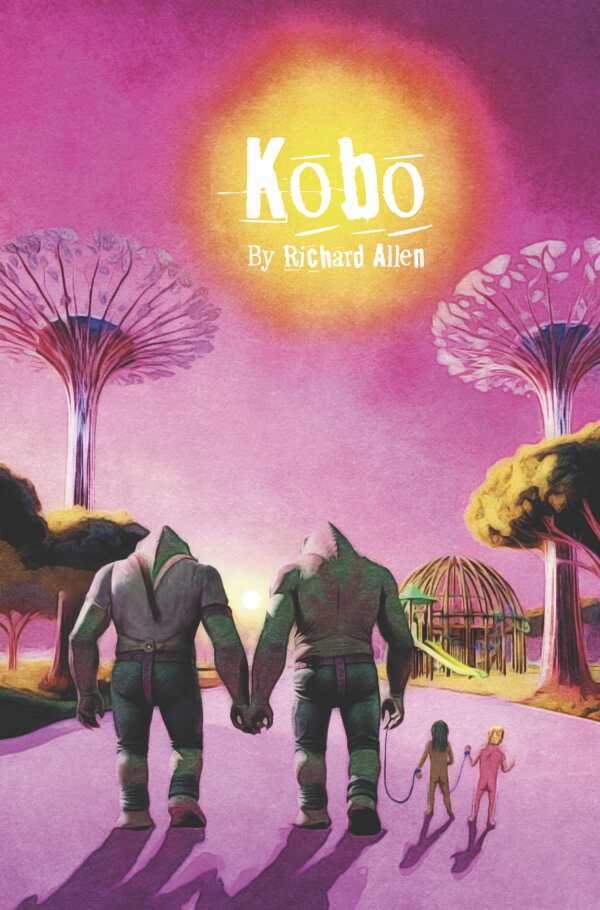Kobo
On a planet where people are kept as pets, human consciousness reemerges in the eerie science fiction novel Kobo.
In Richard Allen’s disturbing science fiction novel Kobo, human empathy, intelligence, and cruelty are mirrored in an alien species.
On a distant planet inhabited by intelligent grobs where humans are treated as livestock, a human boy, Kobo, is raised as a domesticated pet. As he grows, he becomes more aware of himself and of the structures of his world. He also observes the routines of his grobs, Lumf and Tula, whose home, feeding rituals, training rules, and affectionate reprimands reflect the line between care and control.
Progressing via accumulated fragments from Kobo’s domestic life, the book’s early scenes are belabored. They show Kobo fetching slippers, napping at his grobs’ feet, and responding to whistles rather than words. Tula scolds him, too: “Have you been lying on our bed again, you bad boy?” At first given to unthinking obedience, Kobo begins to be more self-aware.
The book’s satirization of human pet ownership is quite on the nose at times: Grob society is fleshed out as prosperous and bureaucratic, and grobs are shown to be prone to exerting dominion over other species. Their discussions of breeding, neutering, and behavioral correction are morally evocative, though, as when Lumf says “No human of mine is going to be an ‘it’” regarding sterilization, encapsulating the grotesque tenderness of animal ownership. Grob cruelty proves casual, a result of habits and social conventions.
Unsentimental and direct, the prose exhibits restraint throughout. Even during intimate and violent scenes, its language is matter-of-fact. When Kobo kills a small creature, for example, his brutality is presented without judgment, exposing how instinct and innocence coexist. Empathy arises not from persuasion but from exposure.
As Kobo matures, the story widens into philosophical territory. The introduction of a mysterious green stone recovered from humanity’s original planet signals a new stage in his evolution. The artifact proves instructive, imparting human language and consciousness to the species. What began as a quiet domestic fable evolves into a story about the reawakening of human intelligence, suggesting that memory, knowledge, and resistance are inseparable. Still, the revelations prompted by the stone are muted, and the book ends with a sense of quiet inevitability.
Kobo is a haunting science fiction novel in which a human in captivity becomes philosophical, considering topics of consciousness, cruelty, and morality.
Reviewed by
John M. Murray
Disclosure: This article is not an endorsement, but a review. The publisher of this book provided free copies of the book and paid a small fee to have their book reviewed by a professional reviewer. Foreword Reviews and Clarion Reviews make no guarantee that the publisher will receive a positive review. Foreword Magazine, Inc. is disclosing this in accordance with the Federal Trade Commission’s 16 CFR, Part 255.

